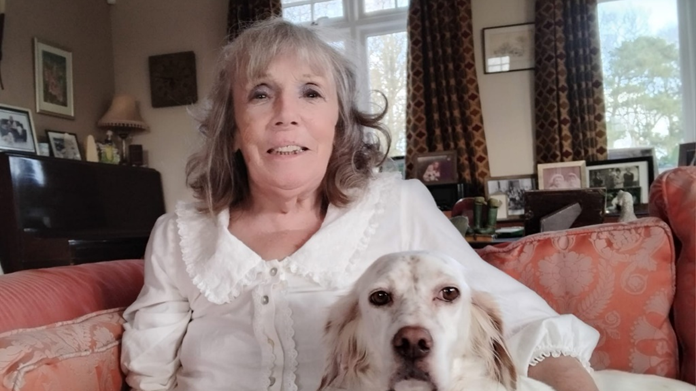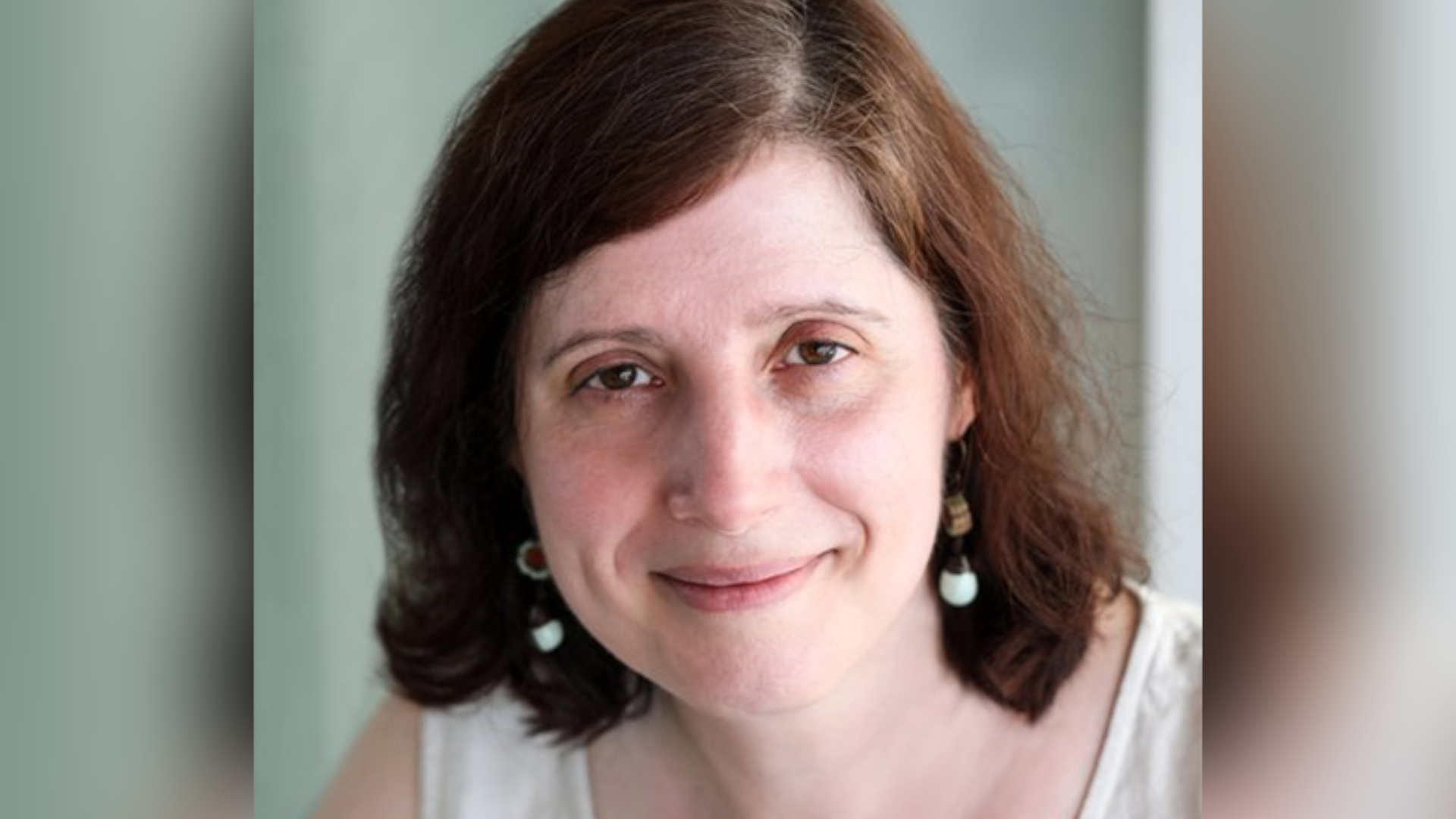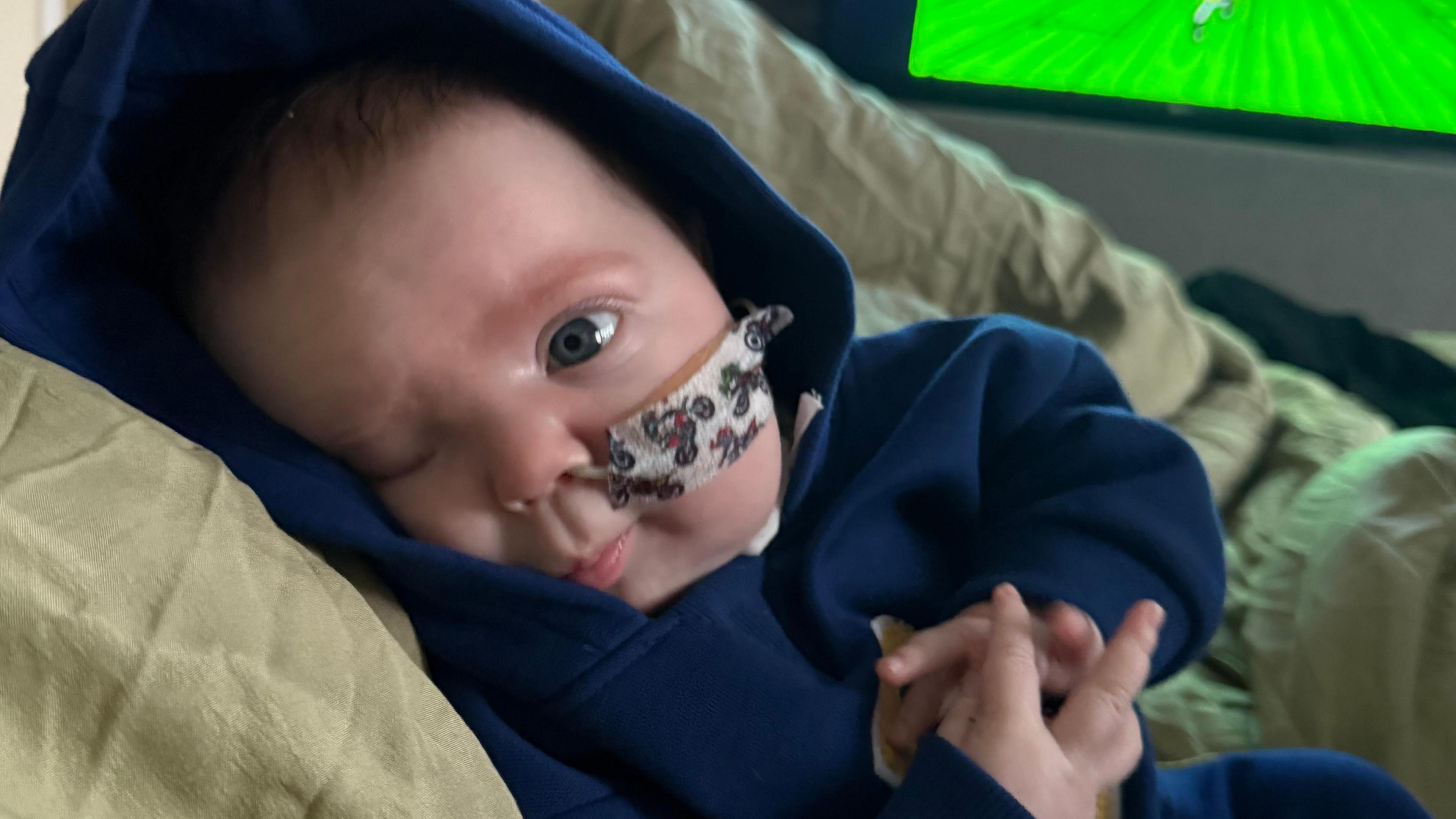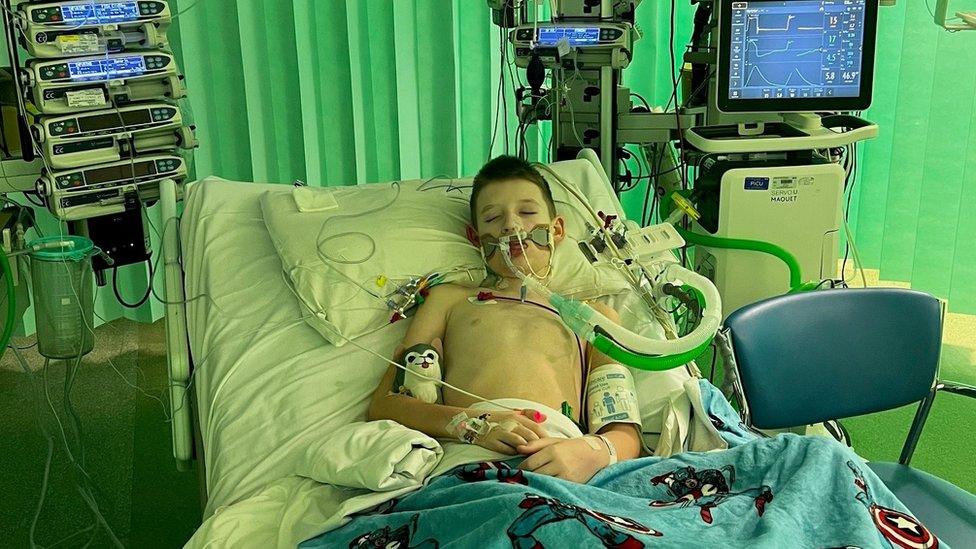Oldest patient with MSMD welcomes new network

Geraldine's twin sister Elizabeth (pictured together in 1954) died aged 17 after five years in hospital
- Published
One of the first people in the world to be diagnosed with a rare genetic disease has welcomed a network to share expertise on her condition.
Geraldine, 75, has mendelian susceptibility to mycobacterial disease (MSMD), which affects her immune system and increases her risk of severe infection.
The disease is difficult to diagnose as its severity varies.
She hoped the NHS Rare Disease Collaborative Network (RDCN) - led by doctors in Cambridge - could advance diagnosis and treatment.

Geraldine, who stays active with the help of her two Shetland ponies and rescue dog called Alice, has been under the care of Addenbrooke's Hospital since 2000
Retired teacher Geraldine, who lives near Basingstoke in Hampshire, is believed to be the oldest person with MSMD, which has caused infections to develop in her spine.
At 15 she spent a year in hospital, alongside her twin, under the care of renowned physician Sir John Crofton.
Her twin Elizabeth died aged 17 and she may also have had MSMD.
In 1982, an infection made Geraldine's spine so weak she needed to be immobilised in a plaster bed which she could not leave for 22 months.
In the early 1980s, Cambridge-based Dr Dinakantha Kumararatne became involved in Geraldine's case and made early clinical observations that helped to define MSMD.
She is under the care of Addenbrooke's Hospital in the city.
What causes of MSMD?
About 150,000 people are estimated to have MSMD, but many are undiagnosed.
It is caused by genetic changes that weaken the body's defences against infections.
Without specialist care people can develop multiple, long-lasting infections that can become life-threatening.
People with MSMD often depend on treatment involving long-term, carefully monitored use of antibiotics.
More severe cases can require bone marrow transplants.

Dr Kumararatne helped identify Geraldine's condition and will be a part of the new RCDN
The new MSMD network is led by Cambridge University Hospitals NHS Foundation Trust (CUH), but also involves clinicians from the nearby Royal Papworth Hospital, Oxford and Newcastle.
It aims to bring people with rare diseases together with leading scientific and clinical expertise to better understand the rare disease.
Geraldine said: "I'm alive today because I've had access to specialist care.
"I was lucky, I knew the right people who understood what was wrong and were able to get me the treatments I needed.
"This network will help more people to get that vital support."

Dr Effrossyni Gkrania-Klotsas said "this network will make a huge difference"
The network will be led by Dr Effrossyni Gkrania-Klotsas, a consultant in infectious diseases at CUH, who provides specialist care for people with MSMD.
Dr Gkrania-Klotsas said: "By working together we hope that many more people can be diagnosed and treated sooner.
"We don't just want to improve care but also to make it more accessible so that patients can get the specialist support they need closer to home."
Get in touch
Do you have a story suggestion for Cambridgeshire?
Follow Cambridgeshire news on BBC Sounds, Facebook, external, Instagram, external and X, external.
Related topics
More like this story
- Published26 August 2024

- Published18 February

- Published9 January 2024
